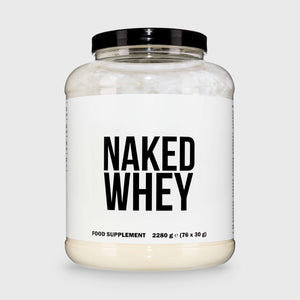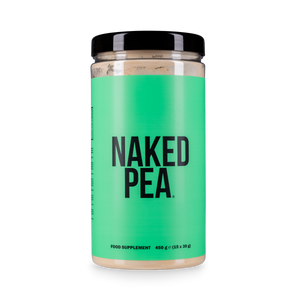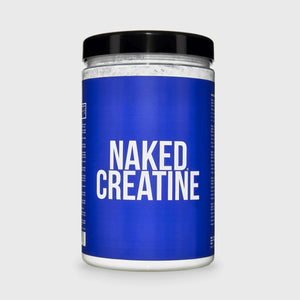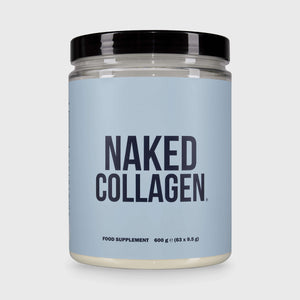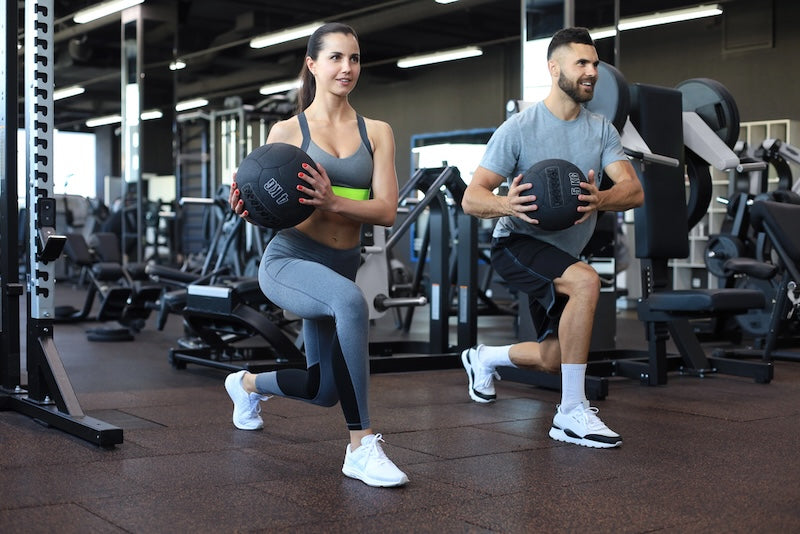Choosing the right pre-workout supplement can make a significant difference in your training performance. With countless options flooding the market, it's essential to know exactly what ingredients will help you crush your fitness goals without unnecessary fillers or potentially harmful additives.
Whether you're looking to increase energy, enhance endurance, or maximize muscle pumps, the perfect pre-workout formula depends on your specific needs. You'll want to focus on scientifically-backed ingredients at effective dosages while avoiding proprietary blends that mask exactly what you're consuming. The right supplement can be the difference between an average workout and breaking your personal records.
What Is Pre-Workout and Why It Matters

Pre-workout supplements are specialized nutritional formulations designed to enhance exercise performance. These performance-boosting products combine various ingredients that work synergistically to improve energy, focus, endurance, and strength during training sessions.
The importance of pre-workout supplements stems from their ability to optimize workout performance beyond what's naturally possible. When properly formulated, these supplements activate physiological pathways that increase blood flow, enhance nutrient delivery, and delay fatigue—all factors that contribute to more productive training sessions.
For example, a randomized double-blind crossover study demonstrated that multi-ingredient pre-workout supplements significantly improved upper and lower body strength and power output in resistance-trained men.
Pre-workout formulas typically contain ingredients like caffeine for energy, citrulline for improved blood flow, beta-alanine for endurance, and creatine for strength. Research shows that caffeine is present in approximately 86% of pre-workout supplements, beta-alanine in 87%, creatine in 49%, and citrulline in 71% of products (Jagim et al., 2019). The strategic combination of these compounds prepares your body for optimal performance during high-intensity activities like weightlifting, HIIT, or endurance training.
The difference between a standard workout and an exceptional training session often comes down to your pre-workout preparation. Using a high-quality supplement can translate into tangible results: completing more reps, lifting heavier weights, or extending your cardio sessions by several minutes—small improvements that compound over time into significant fitness gains.
Understanding what makes an effective pre-workout matters because making informed choices about these supplements directly impacts your training outcomes. The right formula serves as a reliable training partner that helps you break through plateaus and achieve consistent progress toward your fitness goals.
Key Ingredients to Look for in Pre-Workout Supplements
Effective pre-workout supplements contain specific ingredients that support different aspects of exercise performance. Understanding these key components helps you make informed choices about which product best aligns with your fitness goals.
Caffeine for Energy and Focus

Caffeine serves as the cornerstone stimulant in most pre-workout formulations, delivering the energy surge and mental clarity needed for intense training sessions. It operates by activating your central nervous system, enhancing mental alertness, memory function, and overall exercise performance. Most pre-workouts contain 100-300mg of caffeine, equivalent to 1-3 cups of coffee. Taking caffeine 30-60 minutes before exercise improves endurance performance by up to 20% during activities lasting 1-2 hours. This improvement stems from caffeine's ability to reduce perceived exertion and delay fatigue, allowing you to train harder for longer periods.
A review of recent research on the effects of caffeine intake on resistance training shows a positive connection between caffeine intake 30-60 minutes before exercise and benefits in isometric and isokinetic strength, muscular endurance, velocity, and power, and may also enhance adaptations to resistance training, such as gains in strength and power.
Scientific research confirms that caffeine is present in 86% of pre-workout supplements and is particularly effective for enhancing performance in resistance training (Jagim et al., 2019; Harty et al., 2018; Naclerio, 2023; Stratton et al., 2022).
Creatine for Strength and Power

Creatine functions as a naturally occurring compound primarily stored in skeletal muscle, where it plays a crucial role in energy production and muscular strength development. During high-intensity, short-duration activities like weightlifting and sprinting, creatine helps regenerate ATP (adenosine triphosphate), your muscles' primary energy currency. This regeneration enables more explosive power output and allows you to perform additional repetitions before reaching failure. The increased training volume facilitated by creatine supplementation directly contributes to greater strength gains and muscle growth over time. Look for pre-workouts containing 3-5g of creatine monohydrate, the most researched and effective form.
A recent research update on creatine monohydrate supplementation shows that creatine may provide additional benefits, including improved post-exercise recovery, injury prevention, and neurological benefits that may be relevant to sports.
Although only included in approximately 49% of pre-workout formulations, creatine is well-documented for its role in increasing strength and power output, making it a valuable component for those focused on resistance training (Jagim et al., 2019; Harty et al., 2018; Jagim et al., 2015; Gonzalez et al., 2011).
Beta-Alanine for Endurance
Beta-alanine enhances muscular endurance by buffering lactic acid buildup during moderate to high-intensity exercise. This amino acid combines with histidine in your body to form carnosine, which neutralizes the hydrogen ions that accumulate during intense exercise and cause the burning sensation in muscles. Pre-workout supplements typically include 1.5-3g of beta-alanine, with clinical studies showing performance improvements in activities lasting 1-4 minutes. The tingling sensation (paresthesia) experienced after consumption is harmless and indicates the ingredient's presence in sufficient quantity. Regular supplementation maximizes benefits by maintaining elevated muscle carnosine levels, making beta-alanine particularly valuable for HIIT workouts, circuit training, and moderate-rep resistance exercises.
Beta-alanine is found in approximately 87% of pre-workout supplements, though research indicates that many products may contain dosages below the recommended efficacious dose (Jagim et al., 2019; Harty et al., 2018; Gonzalez et al., 2011). For optimal results, look for products containing at least 3.2g of beta-alanine per serving.
Citrulline Malate for Pumps and Blood Flow

Citrulline malate amplifies nitric oxide production in your body, promoting vasodilation and increased blood flow to working muscles. This enhanced circulation delivers more oxygen and nutrients while removing metabolic waste products more efficiently. The improved blood flow creates the coveted "pump" effect - that full, tight sensation in muscles during exercise. Beyond the aesthetic benefits, citrulline malate reduces fatigue and soreness while enabling greater training volume. Effective pre-workout formulations contain 6-8g of citrulline malate, with research demonstrating improvements in repetitions performed before failure and reduced post-exercise muscle soreness. Unlike arginine, citrulline avoids extensive first-pass metabolism in the liver, making it a superior choice for stimulating nitric oxide production.
Present in approximately 71% of pre-workout products, citrulline is widely used to enhance blood flow and reduce muscle fatigue during exercise (Jagim et al., 2019).
Branched-Chain Amino Acids (BCAAs)
While not emphasized in the original content, research shows that BCAAs and other amino acids like taurine are commonly included in pre-workout formulations. These amino acids play important roles in muscle recovery and performance enhancement (Jagim et al., 2019; Jagim et al., 2015; Gonzalez et al., 2011). BCAAs (leucine, isoleucine, and valine) may help reduce muscle protein breakdown during exercise and support recovery, particularly during longer training sessions.
Harmful Ingredients to Avoid

While selecting an effective pre-workout supplement means finding beneficial ingredients, it's equally important to identify and avoid potentially harmful components. Certain ingredients can negatively impact your health and workout performance, leading to unwanted side effects both short and long-term.
High Dose Caffeine
Caffeine in moderate amounts (150-200mg) enhances endurance, mental focus, and delays fatigue during workouts. However, excessive caffeine doses exceeding 400mg per serving create serious health risks, including rapid heartbeat, dangerously elevated blood pressure, anxiety, and insomnia. Many pre-workout formulas contain caffeine equivalent to 3-4 cups of coffee in a single serving, which becomes particularly problematic if you're consuming caffeine from other sources like coffee or energy drinks throughout your day. Check the label for clear caffeine content and avoid products containing more than 300mg per serving to maintain cardiovascular health while still benefiting from performance enhancement.
According to the International Society of Sports Nutrition, very high doses of caffeine (e.g., 9mg/kg of body weight or more) are associated with a significantly increased incidence of side effects and does not increase the ergogenic effects.
Research indicates that users should be particularly cautious of supplements with undisclosed caffeine levels, which are often hidden in proprietary blends (Marques & Capela, 2022; Jagim et al., 2019).
DMAA and Other Banned Substances
DMAA (methylhexaneamine) and anabolic steroid derivatives have been banned by major sports organizations and the FDA due to their severe health risks. These substances drastically constrict blood vessels, potentially leading to cardiovascular emergencies, strokes, and heart attacks. Athletes using supplements containing these ingredients risk not only their health but also failed drug tests and competitive disqualification. Look for products certified by third-party testing organizations like NSF Certified for Sport or Informed-Choice to ensure they're free from banned substances.
Citrus Aurantium (Bitter Orange)
Citrus aurantium, commonly known as bitter orange, is often included in pre-workout supplements for its stimulant effects due to its synephrine content. Research has linked this ingredient to potential cardiovascular issues, making it a concerning addition to many formulations. Furthermore, studies have found that many supplements claiming to contain Citrus aurantium may not actually contain the authentic plant extract, raising serious concerns about ingredient authenticity and potential adverse effects (Marques & Capela, 2022; Koh et al., 2021; Koh et al., 2020).
Yohimbe Extract
Yohimbe extract, derived from the bark of the Pausinystalia yohimbe tree, is known for its stimulant properties but can cause heart palpitations, anxiety, and high blood pressure. It's often included in pre-workout supplements but can be harmful, especially in high doses or when combined with other stimulants. Those with heart conditions, anxiety disorders, or high blood pressure should be particularly cautious about products containing this ingredient (Marques & Capela, 2022).
Garcinia Cambogia Extract
This ingredient is sometimes used in pre-workout supplements for purported weight loss effects, but research indicates it can cause digestive issues and has not been thoroughly tested for safety in high doses. While less common than other potentially harmful ingredients, its presence in some pre-workout formulations warrants caution, particularly for those with existing digestive concerns (Marques & Capela, 2022).
Excessive Stimulants
Pre-workout formulas often contain multiple stimulants beyond caffeine, creating a dangerous "stimulant stack" that amplifies side effects. Ingredients like synephrine, yohimbine, and hordenine, when combined with caffeine, create excessive central nervous system stimulation, leading to heart palpitations, anxiety attacks, and adrenal fatigue with regular use. These stimulant combinations provide diminishing returns on performance while substantially increasing health risks. Choose products with a single primary stimulant or stimulant-free options that focus on blood flow enhancers and performance boosters instead of nervous system overload.
Case reports in scientific literature have documented cardiac issues resulting from pre-workout supplements containing multiple stimulants (Wang, 2019), underscoring the importance of caution with these ingredients.
Proprietary Blends
Proprietary blends on ingredient labels allow manufacturers to hide exact dosages of components under a collective weight measurement. This lack of transparency often masks inadequate doses of beneficial ingredients while concealing potentially dangerous levels of stimulants or harmful additives. Without knowing precise amounts, you can't assess whether a product contains effective quantities of performance enhancers or dangerous levels of stimulants. Avoid supplements listing "proprietary blend," "matrix," or "complex" on their labels and instead choose products that fully disclose individual ingredient amounts, demonstrating both safety and confidence in their formulation.
Research confirms that many supplements use proprietary blends, making it difficult to assess their efficacy and safety (Jagim et al., 2019; Harty et al., 2018; Wang, 2019).
How to Determine Your Pre-Workout Needs

Your ideal pre-workout supplement depends on several personal factors that influence both effectiveness and safety. Assessing these factors helps you select a formula that aligns with your specific fitness journey and physiological requirements.
Training Goals and Workout Style
Your workout type directly impacts which pre-workout ingredients will benefit you most. High-Intensity Interval Training (HIIT) and powerlifting sessions benefit from ingredients like creatine, beta-alanine, and citrulline that enhance muscle strength, reduce fatigue, and improve blood flow. These components support the short-duration, explosive efforts required in strength-focused training.
Endurance activities such as long-distance running or cycling perform better with caffeine, BCAAs, and electrolytes that sustain energy levels and reduce muscle soreness throughout extended sessions. If your primary goal is improving muscle strength and power output, prioritize products containing creatine, which replenishes ATP stores and supports powerful muscle contractions during intense training.
Personal Stimulant Tolerance
Your individual response to stimulants is a crucial consideration when selecting pre-workout supplements. Stimulant sensitivity varies significantly between individuals based on factors like body weight, metabolism, and previous exposure to caffeine or other stimulants.
If you're new to pre-workout supplements or have low stimulant tolerance, start with products containing 100-150mg of caffeine per serving or consider stimulant-free options that focus on blood flow enhancers like citrulline and betaine. Regular coffee drinkers and those with higher stimulant tolerance may require 200-300mg of caffeine to experience the desired energy boost.
Monitor your body's response to different stimulant levels by starting with half-doses of new supplements and gradually increasing as needed. Signs of excessive stimulant intake include jitteriness, elevated heart rate, insomnia, and digestive discomfort – indications that you should reduce your dosage or switch to lower-stimulant formulations.
Reading Pre-Workout Labels Effectively

Serving Size and Number of Servings
Pre-workout labels display serving size information that's crucial for understanding what you're consuming. The serving size, typically one scoop for powdered supplements, doesn't tell the complete story. A 6-gram serving doesn't mean all 6 grams are active ingredients that enhance your workout. Many pre-workouts include fillers, flavoring agents, and carbohydrates that contribute to the total weight but don't provide performance benefits. Check both the serving size and the total number of servings per container to calculate the cost per workout and ensure you're getting value for your money.
Ingredient List and Amounts
The ingredient list reveals exactly what you're putting into your body. Manufacturers list ingredients in descending order of predominance, with the highest-quantity ingredients appearing first. This ordering helps you quickly identify if a product prioritizes effective compounds or cheap fillers.
As a Registered Dietitian Nutritionist, I always educate my clients on label reading to help weed through products that contain added fluff and filler. Supplements often come at a high cost, and you want to ensure you are getting the best quality.
Be extra cautious with proprietary blends, which combine multiple ingredients under a single quantity listing. These blends mask the exact amounts of each component, making it impossible to determine if you're receiving effective dosages. For example, if a label shows "Energy Blend (5g): Caffeine, Beta-Alanine, Taurine," you can't know if you're getting performance-optimizing amounts or just minimal quantities.
Always verify that ingredients appear in their research-backed forms. Creatine monohydrate, for instance, has extensive scientific support for its effectiveness, while alternative forms like creatine hydrochloride lack the same level of evidence despite often costing more. Examining the specific forms of ingredients ensures you're not paying premium prices for inferior compounds.
Research has also raised concerns about ingredient authenticity, with studies finding that many supplements claiming to contain certain plant extracts (like Citrus aurantium) may not actually contain the authentic ingredient (Koh et al., 2020; Koh et al., 2021). This underscores the importance of choosing products from reputable manufacturers with third-party testing.
Timing Your Pre-Workout for Maximum Benefits

Understanding when to take your pre-workout supplement is just as important as choosing the right ingredients. Optimal timing ensures you experience peak performance during your workout while maximizing the benefits of each ingredient.
Key Ingredients and Their Absorption Rates
Different pre-workout ingredients reach their peak effectiveness at varying times after consumption:
-
Caffeine peaks in 30-60 minutes and remains active for up to 5 hours, making it a critical timing consideration for energy and focus enhancement
-
Beta-alanine works through consistent supplementation rather than providing an immediate performance boost
-
Creatine builds up in your system over time with regular use, not as an acute performance enhancer
-
Nitric oxide boosters (like citrulline) increase blood flow within 20-40 minutes, enhancing muscle pumps and nutrient delivery
For a complete pre-workout formula containing multiple ingredients, the 30-minute mark generally provides the optimal balance for most compounds to take effect.
Optimal Timing for Different Workout Types
Your training style directly impacts when you should take your pre-workout:
-
Strength training benefits from taking pre-workout 30-45 minutes before your session, ensuring peak effectiveness during heavy lifts
-
High-intensity interval training works best with pre-workout consumed 20-30 minutes beforehand to align with the intense energy demands
-
Endurance workouts may benefit from slightly earlier intake (40-60 minutes) to ensure sustained energy release throughout longer sessions
-
Morning workouts often require slightly more lead time (45-60 minutes) as your metabolism is typically slower after waking
Taking your pre-workout at the right time for your specific training style ensures you experience maximum benefits when your body needs them most during exercise.
Conclusion
Choosing the right pre-workout isn't just about getting a quick energy boost—it's about strategic supplementation that aligns with your specific fitness journey. By prioritizing scientifically-proven ingredients at effective dosages, you'll maximize every training session.
Remember to assess your personal needs based on workout style and stimulant tolerance while being vigilant about avoiding harmful additives. The research clearly identifies caffeine, beta-alanine, creatine, and citrulline as the most common and effective ingredients, but also warns against proprietary blends and potentially harmful ingredients like Citrus aurantium (bitter orange), Yohimbe extract, and excessive stimulant combinations (Jagim et al., 2019; Marques & Capela, 2022). Proper timing ensures peak performance when you need it most.
Your pre-workout selection directly impacts your training results. Armed with the knowledge of what to look for—and what to avoid—you're now equipped to make informed choices that will help you break through plateaus and achieve consistent progress toward your fitness goals.
Frequently Asked Questions

What is a pre-workout supplement?
A pre-workout supplement is a specialized nutritional formulation designed to enhance exercise performance. These products combine ingredients that work together to improve energy, focus, endurance, and strength during workouts. They activate physiological pathways that increase blood flow, enhance nutrient delivery, and delay fatigue, ultimately leading to more productive training sessions.
Why are pre-workout ingredients important?
Pre-workout ingredients are crucial because they directly impact your training results. Quality ingredients in effective dosages can significantly enhance energy, endurance, and muscle pumps, while poor ingredients or proprietary blends can waste your money or even harm your health. Understanding ingredient profiles helps you select supplements that align with your specific fitness goals and avoid unnecessary fillers.
How much caffeine should be in my pre-workout?
Your pre-workout should contain between 150-300mg of caffeine per serving, depending on your tolerance. While caffeine can improve endurance performance by up to 20%, exceeding 400mg per serving can lead to serious health risks, including anxiety, insomnia, and cardiovascular issues. If you're sensitive to stimulants, look for products with lower caffeine content or stimulant-free alternatives.
What ingredients should I look for in a pre-workout?
Look for scientifically-backed ingredients in effective dosages: caffeine (150-300mg) for energy and focus, creatine (3-5g) for strength and power, beta-alanine (3.2-6.4g) for endurance, and citrulline malate (6-8g) for improved blood flow and muscle pumps. Research shows these core ingredients are present in many pre-workout formulations (caffeine in 86%, beta-alanine in 87%, creatine in 49%, and citrulline in 71%) and have substantial evidence supporting their benefits for exercise performance (Jagim et al., 2019).
What ingredients should I avoid in pre-workouts?
Avoid excessive caffeine (over 400mg), banned substances like DMAA and anabolic steroids, dangerous stimulant combinations, and proprietary blends that don't disclose individual ingredient amounts. Research also warns against Citrus aurantium (bitter orange), Yohimbe extract, and Garcinia cambogia extract, which have been linked to cardiovascular and other health concerns (Marques & Capela, 2022). These components can pose serious health risks including cardiovascular problems, liver damage, and harmful side effects without providing additional performance benefits.
How do I determine which pre-workout is right for me?
Determine your pre-workout needs based on your training goals, workout style, and stimulant tolerance. High-intensity workouts benefit from creatine and beta-alanine, while endurance activities need caffeine and electrolytes. Those with low stimulant tolerance should start with lower caffeine levels. Choose products that clearly list ingredient amounts and contain research-backed forms of key components.
When should I take my pre-workout supplement?
Take your pre-workout approximately 30 minutes before exercise, but timing varies by training type: 30-45 minutes before strength training, 20-30 minutes before HIIT, and 40-60 minutes before endurance workouts. Different ingredients have varying absorption rates: caffeine peaks in 30-60 minutes, while beta-alanine and creatine require consistent use over time for maximum benefits.
How do I read pre-workout supplement labels?
Read pre-workout labels by first checking the serving size and total servings. Then scrutinize the ingredient list, which is organized by quantity, to identify effective compounds versus fillers. Avoid proprietary blends that don't disclose individual ingredient amounts. Verify that ingredients appear in their research-backed forms and dosages to ensure you're getting value for your money.
Can pre-workouts help me break through fitness plateaus?
Yes, quality pre-workouts can help break through fitness plateaus by enhancing energy, focus, endurance, and strength during training. When used consistently alongside proper nutrition and training, pre-workout supplements can lead to more productive workouts, allowing you to push harder and recover better. This improved training quality translates to consistent progress toward your fitness goals over time.
Are pre-workout supplements safe?
Pre-workout supplements are generally safe when used as directed and when you choose products with transparent ingredient lists and research-backed components. Potential risks come from excessive stimulants, harmful additives, or undisclosed ingredients in proprietary blends. Research has identified specific concerns with ingredients like Citrus aurantium, Yohimbe, and high caffeine doses (Marques & Capela, 2022). Always start with lower doses to assess tolerance, especially if you're sensitive to stimulants or have underlying health conditions.
Also Read:
Does Pre Workout Make You Itch?
How Long Does Pre-Workout Last?
Is It Ok to Take a Pre Workout Every Day?
References
Gonzalez, A., Walsh, A., Ratamess, N., Kang, J., & Hoffman, J. (2011). Effect of a pre-workout energy supplement on acute multi-joint resistance exercise. Journal of Sports Science & Medicine, 10(2), 261-6.
Harty, P., Zabriskie, H., Erickson, J., Molling, P., Kerksick, C., & Jagim, A. (2018). Multi-ingredient pre-workout supplements, safety implications, and performance outcomes: a brief review. Journal of the International Society of Sports Nutrition, 15. https://doi.org/10.1186/s12970-018-0247-6
Jagim, A., Harty, P., & Camic, C. (2019). Common Ingredient Profiles of Multi-Ingredient Pre-Workout Supplements. Nutrients, 11. https://doi.org/10.3390/nu11020254
Jagim, A., Wright, G., Schultz, K., St Antoine, C., Jones, M., & Oliver, J. (2015). Effects of acute ingestion of a multi-ingredient pre-workout supplement on lower body power and anaerobic sprint performance. Journal of the International Society of Sports Nutrition, 12, P49-P49. https://doi.org/10.1186/1550-2783-12-S1-P49
Koh, A., Chess-Williams, R., & Lohning, A. (2020). HPLC-UV-QDa analysis of Citrus aurantium-labelled pre-workout supplements suggest only a minority contain the plant extract. Journal of Pharmaceutical and Biomedical Analysis, 193, 113746. https://doi.org/10.1016/j.jpba.2020.113746
Koh, A., Chess-Williams, R., & Lohning, A. (2021). Racemic synephrine found in Citrus aurantium-listing pre-workout supplements suggests a non-plant-based origin. Drug Testing and Analysis. https://doi.org/10.1002/dta.3042
Marques, J., & Capela, J. (2022). Potential health risks surrounding ingredients of pre-workout and post-workout dietary supplements: a thorough label analysis. Revista de Nutrição. https://doi.org/10.1590/1678-9865202235e200148
Naclerio, F. (2023). Supplementation with Multi-Ingredients for Physically Active Individuals. Revista Iberoamericana de Ciencias de la Actividad Física y el Deporte. https://doi.org/10.24310/riccafd.12.3.2023.17761
Stratton, M., Siedler, M., Harty, P., Rodriguez, C., Boykin, J., Green, J., Keith, D., White, S., DeHaven, B., Williams, A., & Tinsley, G. (2022). The influence of caffeinated and non-caffeinated multi-ingredient pre-workout supplements on resistance exercise performance and subjective outcomes. Journal of the International Society of Sports Nutrition, 19, 126-149. https://doi.org/10.1080/15502783.2022.2060048
Wang, S. (2019). PRE-WORKOUT SUPPLEMENT INDUCED CARDIAC ISCHAEMIA IN A YOUNG FEMALE. Journal of Sports Sciences, 38, 187-191. https://doi.org/10.1080/02640414.2019.1689598
